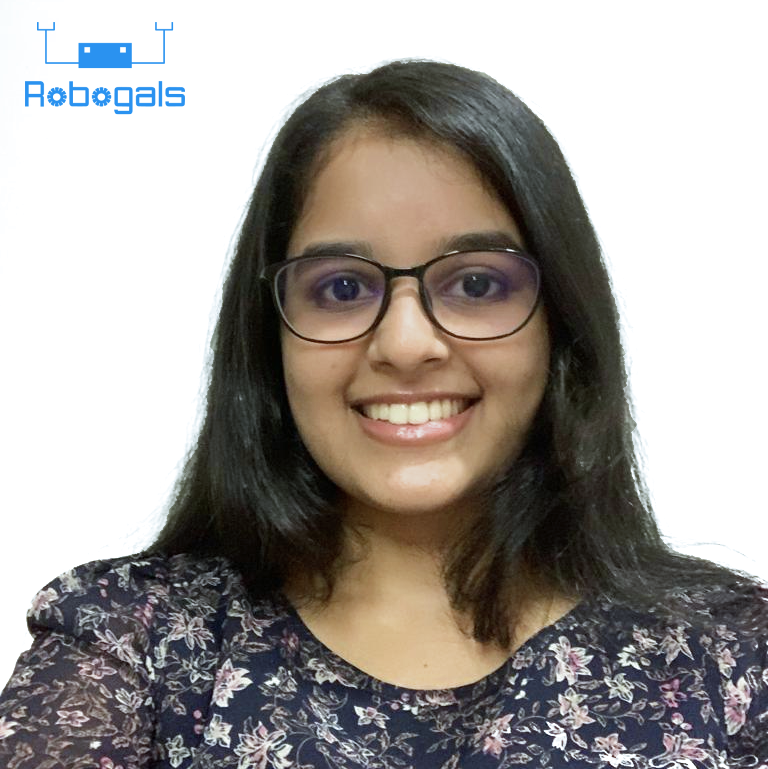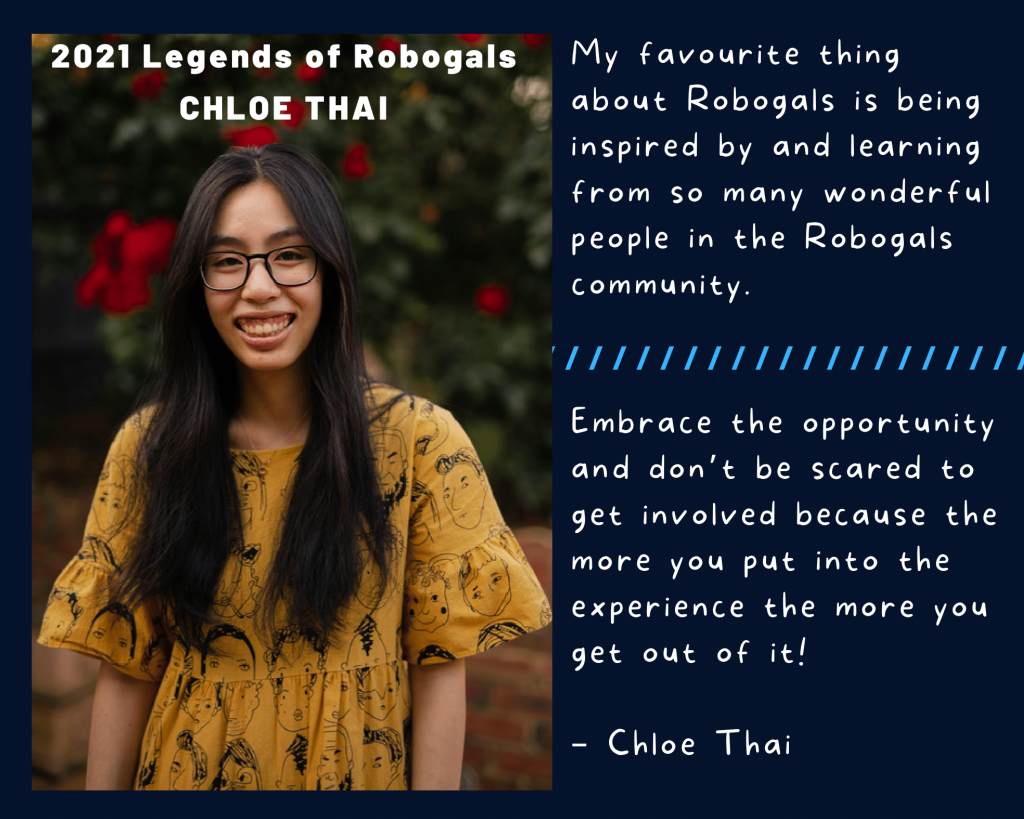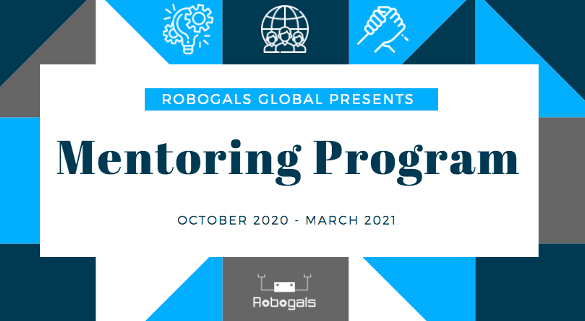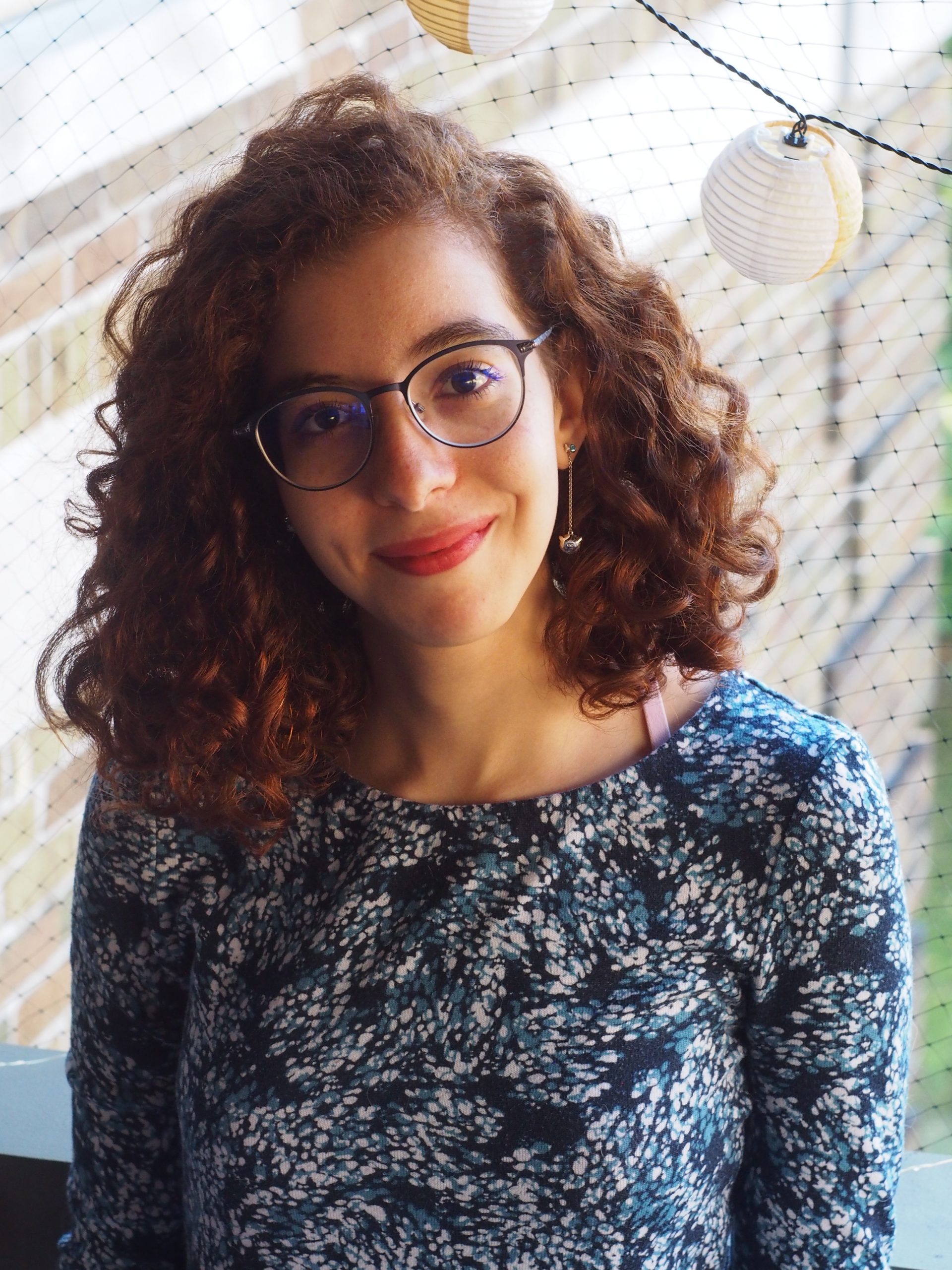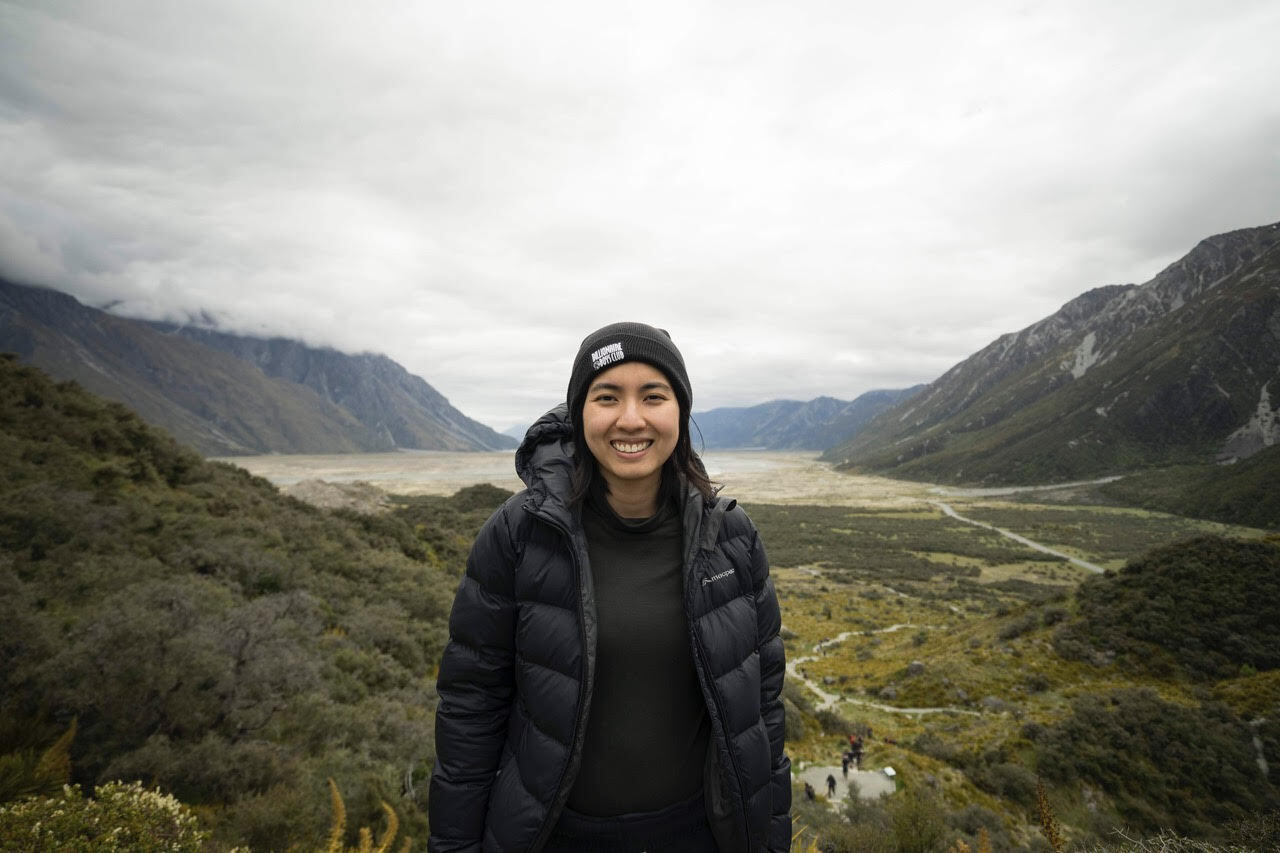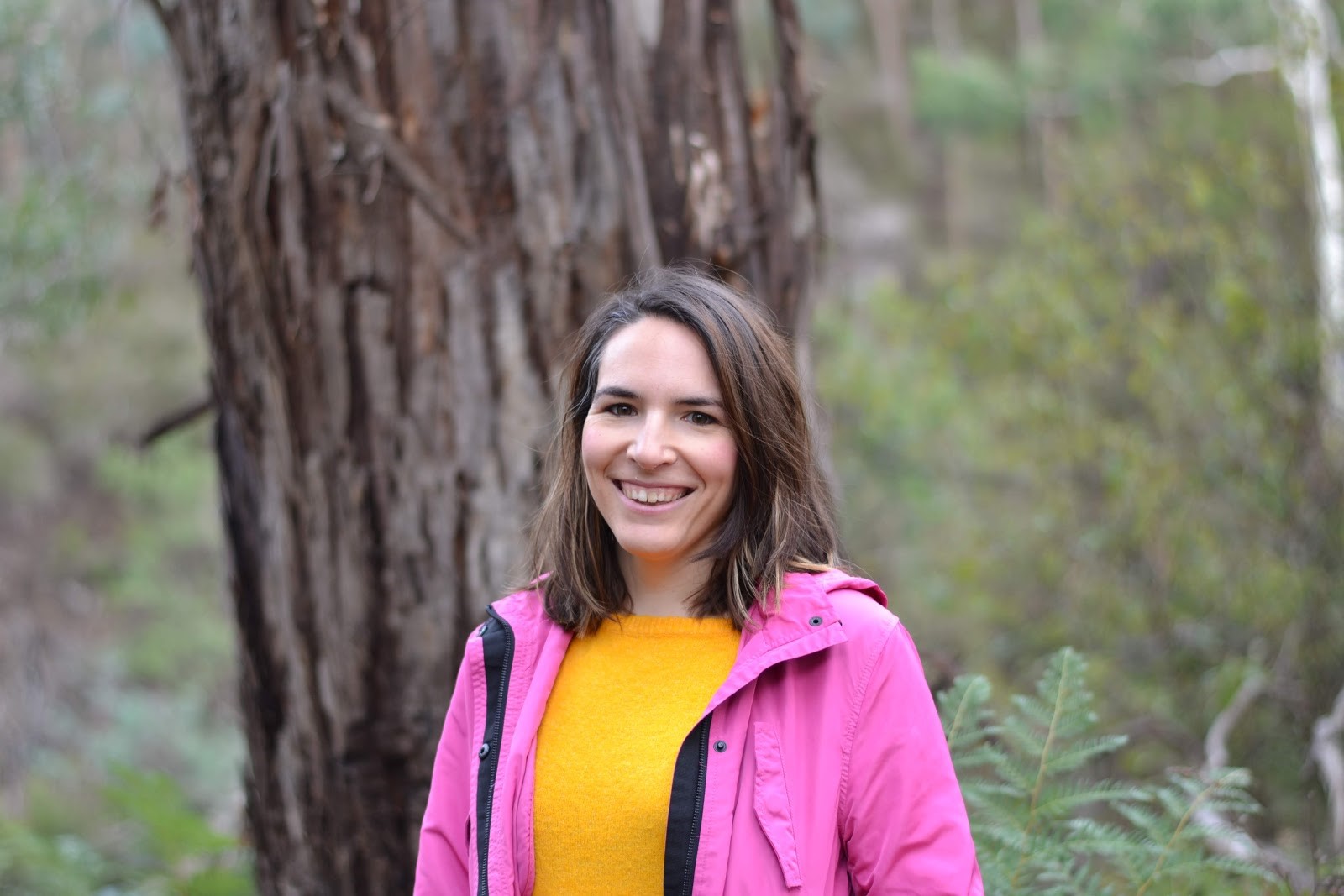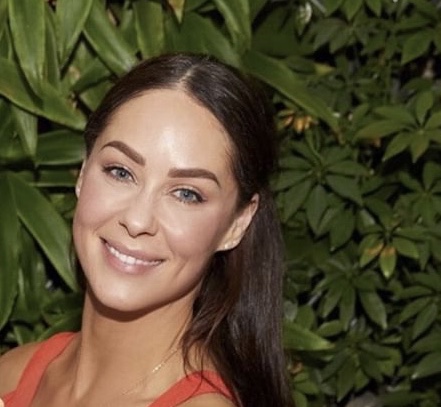By Freddie Lough Recently I sat down with our own Robogals Marketing Manager Raksha Ramprasad Venkata Suvarna to talk about her passion for artificial intelligence (AI) and being a role model for women in STEM. Robogals Global Marketing Manager (2022) Raksha Ramprasad Venkata Suvarna Experience in school As a engineering university student, she reflects on her previous experiences growing up in middle school with a noticeable disparity between girls and boys taking on technical subjects including physics and maths. “For a career in STEM, you need to start at middle school.” Although very engaged in STEM subjects, Raksha, like majority of her female peers, didn’t do physics or maths subjects but rather biology, psychology and chemistry which are typically more healthcare-oriented and generally more female dominated. The more technical mechanical subjects were dominated by males. “I did notice that most of them [female students] tend to steer towards biology, but not technical subjects.” This is where she believes the work of Robogals is incredibly effective in showing young students in their formative years, the range of possible careers they can take and normalise the image of women working in engineering. The Robogals workshops focus on robotics and coding activities which are incredibly interactive and encourage logical thinking. When choosing her degree for university, Raksha stayed true to her interests and chose mechatronics engineering with a focus on AI. Mechatronics engineering is the combination of mechanical, electrical and software engineering: robotics. Robogals workshop using EV3 LEGO Mindstorm robots The AI industry At first glance of the AI industry from her internship, Raksha observed the number of women in the workplace to be about 30%, however upon closer inspection, the women in the engineering workspace were generally working in HR or public relations, not technical roles! It seems like a repetition of what she experienced in her middle school. When there’s an “increase in age or elevation in hierarchy [in the workplace], there’s less women in technical roles.” As I discovered when speaking with Raksha, AI has an discouraging situation in relation to gender and race discrimination. While she is passionate about working in the AI area, it has a ways to go. In fact, it’s one of her motivators to make a difference for the better. AI is “proficient enough to be used for many applications, but when it comes to certain softwares, it tends to discriminate against women and people of colour.” There’s an AI software that can identify lung problems and diseases more efficiently in men than other groups of people. Additionally, AI is generally more capable of facial recognition when it comes to caucasian males. These examples highlight a clear disparity and are further expanded on in Kyle Wiggers’ ‘Researchers find evidence of racial, gender, and socioeconomic bias in chest X-ray classifiers.’ [1] Robogals’ impact reaches far and the community of strong females and inspiring mission is what made Raksha volunteer her time as schools coordinator and marketing manager. Just as she’s grown in her confidence, her work ultimately instils confidence in the young students she interacts with. — Resources: [1] Kyle Wiggers, ‘Researchers find evidence of racial, gender, and socioeconomic bias in chest X-ray classifiers’, Venture Beat, New York City, USA, 2020, https://venturebeat.com/2020/10/21/researchers-find-evidence-of-racial-gender-and-socioeconomic-bias-in-chest-x-ray-classifiers/, (accessed 23rd February, 2022)
Legend of Robogals: Chloe Thai – APAC SINE 2021
Robogals congratulates Chloe Thai for receiving the Legend of Robogals award due to the huge impact she has made over a difficult year. Many places were hit hard from lockdowns, however Chloe led the chapter to reach more than 650 students across Victoria. During her time as President, workshops were run […]
#People of Robogals: Eliza Li – A Blessing in Disguise
By Imogen Feder Robogals Global was lucky enough to speak with young social entrepreneur Eliza Li (Managing Director & Co-founder of Halad to Health) this week. In 2019, while still at university, Eliza and a group of her biomedicine peers travelled to the Philippines to run preventative health education lessons in the local schools. Seeing the communities’ need for further health education, and inspired by the success of the volunteer mission trip, Eliza developed a program to help close the gap in health inequality – and so Halad to Health was born. 1 Eliza Li with Halad to Health volunteers Like for many, 2020 didn’t exactly go as planned for Eliza and the lockdown swiftly brought to a halt Halad’s future missions. This was a turning point for the charity – would they leave their work as it was or shift gears in a new direction? Eliza and her team decided to pivot their attention to raising funds for Halad. They saw a gap in the market for affordable and student run pre-med tuition services. Despite all that has happened, Eliza describes it as a ‘blessing in disguise’. “It’s sort of hard to admit when something is tragic but actually goes in your favour – for the start-up of Halad, however, it really was.” 2 Eliza on a volunteer trip with AIESEC in the Philippines Before all this, Eliza was a biomedicine/commerce student at Monash University, passionate about making a difference in the world. She first travelled to the Philippines at the beginning of 2017 with AIESEC, volunteering her time to train and work as a scrub nurse with local doctors and nurses. The trip planted a seed of an idea in Eliza’s mind. “Thank you will never be enough for all the doctors and nurses who really invested their time into me,” she said, “I knew I wanted to pay that investment forward and help educate others.” But how does a third-year university student start a not-for-profit in a foreign country? Fast forward two years, Eliza received a phone call from a local friend, who lived in Mindanao, the southern island in the Philippines, and would later become her Halad to Health co-founder. After that call for help, she returned on a ‘discovery’ mission, visiting the local hospitals and schools with new local friends, asking questions and observing the health system as it was. 3 Halad volunteers created simplified health information for local hospitals They started small. They noticed the posters on the walls of the local hospitals were all written in scientific English which presented a clear barrier to health education as many locals were from farming communities with little knowledge of English. So they translated the information, breaking it down into three basic dot points to make it easier to understand. She then recruited Monash student volunteers who travelled to the local Filipino schools, presenting and contextualising the health information to the students. And so Halad was born with the message that “a real change can happen when you provide someone with the right health education to begin with”. She reflects “we get taught about the burden of global health at university but not how possible it is for us as students to fill that void.” 4 Halad to Health volunteers with Dr Uy, Medical Director of the Mindanao Foundation Hospital (Valencia City) Even before the pandemic started, Eliza was conscious that Halad was not sustainably funded. Often digging into her own pockets, Halad needed a more constant source of funding to allow for future missions. And so the team brainstormed. They trialled offering a masterclass for pre-med students, run by past successful candidates, preparing them for the notoriously difficult Graduate Medical School Admission Test (GAMSAT). It was an instant hit with students who were used to paying upwards of hundreds of dollars for resources. Soon, a six-week course was created, one that quickly moved online and became popular with not just Monash students, but students from all around Australia and the UK. As their GAMSAT services continued to grow, Eliza and her team set a new precedent for affordable, socially conscious and student run tuition. The tuition fees go towards Halad’s mission and Eliza believes that being a socially conscious option for students is one of the reasons their tuition services have proved so instantly popular, reaching over 1600+ students (across paid and free GAMSAT services) and raising 6-figures in this first year since launching. 5 A GAMSAT workshop run by Halad to Health at Monash University earlier this year (image taken prior to Covid-19 social distancing requirements) There is a common misconception about company founders that the success story we all see was the first idea. Halad to Health, both in their missions and the GAMSAT services, seems like it’s been years in the making, and Eliza admits that it has. “The successful company is never the first idea! Ever since leaving high school I have created start-ups and, let’s be honest, they’ve all failed.” Failure, however, is what led to Halad and its success. “It stands on the shoulders of all the failures that came before it,” she said. For those looking to start their own business, Eliza recommends having the mentality of just listening. “You’re not there to impose a solution, you’re really just trying to hear what the problem is.” Eliza also adds that doing what you truly love and are passionate about sometimes requires patience. “I had to be honest with myself and realise that I had to determine my own way of doing things. I had to have faith in myself that I would see when the time was right, but I also don’t think I would have the skills to pull it off if I hadn’t taken the time to learn and grow my networks. You’re expected to have it all figured out when you reach the end of your degree but, to be honest, I really did not.” Resources: https://www.haladtohealth.org/ https://medium.com/halad-to-health/halad-turns-1-fe2675894943 If you know of someone who may want to share their experiences and love of science
The Robogals Alumni Mentoring Program
By Imogen Feder Our Alumni Mentoring program was launched virtually on the 8th of October, bringing together past and present Robogals volunteers from Australia, Belgium, the Philippines, Indonesia, New Zealand and the US. The aim of the program is to match Robogals’ alumni with current volunteers, to help build their networks, provide support and share insight into STEM career pathways. Mentees are placed with mentors from a diverse range of backgrounds, including acoustic engineering, cyber security consulting and implant technology developing at Cochlear. Nicole Brown is one of the first mentors to join the program. Nicole is a Structural Engineer, Buildings and Places at AECOM and was CEO of Robogals in 2013 to 2018. Nicole joined the program to share her knowledge and experience but also to learn from the next generation of volunteers. During her time with Robogals, Nicole was a mentee in the PWC 21st Century Minds Program and gained incredible experience from her mentor, who she is still in touch with today. She believes that mentorship provides young STEM students with the “opportunity to ask questions in a safe and non-judgemental environment. There are many situations where students, in particular girls, do not feel comfortable asking questions and as a result, they do not have the opportunity to develop and grow as quickly as their potential would allow them to.” As women strive to succeed in STEM careers, they are often met with systemic barriers, including a lack of mentoring opportunities. The Women in Stem Decadal Plan identifies this as an issue that can lead to a significant reduction in the proportion of women at every stage of professional progression in STEM fields. The program is inclusive of all Robogals’ volunteers and alumni. Morris Gu, a third year electrical and computer systems engineering student at Monash University, is a mentee in the program. He recognises that STEM has always been a male dominated field, so he believes that it is important to support female leaders. Morris wishes to gain greater insight into career opportunities through the program, particularly in the telecommunications or robotics industry, that he has not found in his studies. Following the launch event, the participants meet for three months, giving the mentors an opportunity to guide, advise and support their mentees. Robogals Alumni Mentoring Launch Night The program will be run from October to March. It has been run with Robogals APAC this year but will be expanded globally next year.
#PeopleOfRobogals: Amina Berrada
By Imogen Feder For our latest People of Robogals blog, we had the pleasure of talking to engineer Amina to discuss her decision to move overseas to study, her passion for mentoring female science students and her fascination with studying light – and electric fish. Amina Berrada You can tell Amina is passionate about electric fish from the way she starts to talk fast, and her eyes light up. “They really are the most fascinating creatures,” she says, smiling, “so please just stop me if I am talking about them for hours”. These tiny fish use electric signals to navigate and talk to one another, and Amina’s thesis attempts to unravel how their brains interact with their electric organs. She started researching Weakly electric fish, including the Black Ghost Knifefish, while a physics and engineering student at the University of Ottawa and is expecting to publish her research shortly. With so much obvious passion for physics and engineering, it is surprising to learn that Amina didn’t always believe a career in science was a possibility. As a girl growing up in Morocco, she didn’t know many female family or friends working in STEM-related fields, and was not pushed to explore her passion for science at school. “I can only speak to my experience but often women’s careers are not prioritised, and girls aren’t always encouraged to pursue their education in technical fields. Having more women representation in STEM could really make a difference.” Luckily, Amina’s parents encouraged her to visit libraries and discover science, and to pursue her interest in stars and planets in her own way. In her final year of high school, she was inspired by her Physics Professor to pursue further study in science. When it came to choosing a university, her strategy was a little unusual. “Naive me in high school”, she said, laughing, “I looked at the Nobel Prize Laureates Nominees in Physics and I saw the University of Ottawa had a Professor that was nominated.” Moving halfway across the world, Amina found herself studying in classes with only four females out of 150 students. “It can be really intimidating. Sometimes it is hard to be taken seriously just because you don’t match what everyone else looks and feels like.” These experiences inspired Amina to mentor other science students while at university. She found student to student interaction to be helpful, especially for first year students struggling with time management and learning strategies. She soon found that being visible as a woman in STEM was inspiring to many students, giving them hope they could “power through the degree and get it done!” Amina was one of the first students to graduate with a double degree in Physics and Engineering from the University of Ottawa and specialised in photonics, the application of light. She now works as an engineer at Lumentum and is involved in projects that aim at improving the manufacturing process and quality of optical communication products. “I am so fortunate that I had the opportunity to study, and now work, in a field that I love and I realise that a lot of people don’t have that option.” Amina started working with Robogals in May after she organised the Canadian Conference for Undergraduate Women in Physics at the University of Ottawa in 2019. At the Conference, she found it empowering to see so many women speaking about graduate opportunities, and Nobel Prize winning physicist Donna Strickland spoke at the event. She is now busy ensuring that future Robogals North American SINE Conferences will be full of inspiring female STEM speakers and workshops. Amina continues to inspire people to make a difference. “I want to give all girls the idea that if a career interests you, then don’t be afraid to pursue it! It might look intimidating and scary, and maybe you don’t know any women who have done it, but it is possible. I had the craziest dreams as a kid. It’s telling kids that it is possible to have a career in science that really makes a difference!” If you know of someone who may want to share their experiences and love of science – please contact us at [email protected]
#PeopleOfRobogals: Alexa Nguyen – Cracking the Code
By Imogen Feder In late 2019, Robogals sat down with Alexa Nguyen, a Software Developer at SEEK, to discuss the importance of encouraging girls to try coding and programming at a young age. Pathway to Coding Alexa first started a Science degree in 2013 at the University of Adelaide. Like a lot of undergraduates, she simply just didn’t know what she wanted to do. “Perhaps”, she said, “if I had been exposed to Robogals earlier, I might have chosen to pursue software engineering or computer science straight out of high school.” After finishing her science degree, she chose to start a Maths and Computer Science degree. At this point, she was just aiming to get good enough grades to transfer into dentistry, as her parents wanted. However, to her surprise, her enjoyment in taking an introductory programming course prompted her to change into an advanced stream of a computer science degree. Alexa’s Journey with Robogals Alexa first started going to Robogals social events for the free pizza and to meet people. “It just sounded a bit scary and intimidating!”, she told us, laughing. Her love for teaching kids how to code and program robots was discovered when she helped run a Robogals workshop in Mount Gambier. “When I was in school, I was never encouraged to try coding! If I were in their position, I’d be really happy to be shown how to code and program these robots and do these cool things!” The five-day rural trip took place in 2017, and Robogals Adelaide visited five different schools. “I really cherished the opportunity to help out some kids who had never been exposed to STEM!” Despite it being her first workshop, Alexa found it all really easy to pick up, thanks to the help of a few experienced volunteers. While on the trip, Alexa and the other volunteers had the perfect opportunity for light painting against the backdrop of stars. The lack of light pollution had stunning results, with the volunteers only needing the light from their phones to illuminate their surroundings. In 2019, Alexa became the treasurer for the University of Adelaide Chapter and helped bring 39 workshops to 1058 students throughout the year. Into the Future According to Alexa, a choice to study STEM at university isn’t enough. “We need to help foster a sense of belonging for women in tech so that they remain engaged in the community!” she said. “That’s why I loved being involved with Robogals and attending the annual SINE conference where I could connect with like-minded people who share a common goal.” Now having completed her studies, she hopes there will be further opportunities for her to attend Robogals workshops in the future. If you want to share your experiences with Robogals or passion for STEM with us – please contact us at [email protected]
New Territory – Elspeth De Fanti shares her career in Forestry
By Imogen Feder Elspeth De Fanti A message lost in communication led forestry student Elsepth De Fanti to remote Tasmania, where she hiked through incredibly dense bush and worked on field sites for 10 weeks. At the time, she didn’t realise that she was almost overlooked for the forestry placement, which was “90% outdoors and physically demanding”, as the employer had requested the position be filled by a male student. This request was never received by the interview panel and so Elspeth, and another female student, were successful applicants for the work. “I think they felt that their teams were very blokey and that it was really hard work,” the now 34 year-old said. However, Elspeth believes that she and her colleague proved that the request should not have been made. “Quite clearly we could fulfill the role and excel in it! I felt it was a real triumph in terms of showing them they had made a real mistake in making that request.” Elspeth in Tasmania completing her Forestry work experience Now 10 years into her career, Elspeth has tested the boundaries of the traditionally male-dominated field of forestry. “Operational forestry is still very much a blokes world and it was definitely in my face when I entered the work environment,” she said. Elspeth firmly believes that the future of forestry is changing, and as a science pathway that remains largely undiscovered, it holds enormous potential. “Forestry is broad and all encompassing and it can’t be easily defined. It’s largely the science and practice of planting, managing, and caring for forests, it’s just so diverse.” After completing a Bachelor of Forestry/Bachelor of Science from the University of Melbourne in 2007 (similar to the current Forest Ecosystem Specialisation in the Ecosystem Science Major in the Bachelor of Science), Elspeth was given an opportunity to work with the Victorian state government to manage invasive species across Victoria. She recalls that State Prohibited Weed, known as Mexican feather grass, was mistakenly sold from a large hardware chain across Melbourne as part of a Mother’s Day promotion. “It was treated as a huge biosecurity threat so we had to put together a whole operation to retrieve every plant that was sold from people’s gardens. Luckily we did have success in retrieving a majority of them by communicating with the public. It was a very exciting job!” Following on from this, Elspeth was invited by the Portugese government to travel to the Azores and present on Australia’s approach to biosecurity threats. Elspeth giving a presentation on Mexican Feather Grass in the Azores, Portugal Elspeth went on to run a BushTender program, funding farmers to rehabilitate parts of their property and to protect native vegetation on their land. She has also helped plan for Melbourne’s growth areas, such as Weribee, Officer and Cranbourne. In this work, she worked to protect key conservation areas and key species such as Eastern Barred Bandicoots and Growling Grass Frogs. She says that a career highlight was travelling with an Australian team of firefighters to help Canada with their wildfire management. “Canada struggles with their wildfires and they see Australian firefighters as having an exemplary skill set. So it was fantastic to go across as a liaison officer assistant to help with the logistics of 100 Australian firefighters.” Elspeth in British Columbia “I think that it is a really exciting time to enter into Forestry because there is a lot of international work out there! I have a friend who is being sought after from Peru to Papua New Guinea to everywhere, just because the skills they have are so few and far between.” Elspeth has also enjoyed the potential for her career to cross over into a communications capacity. While working on the Glenelg Ark Fox Project in Dartmoor, Elspeth developed strategies and dabbled in the area of marketing. “I was pleased that while I was working in a science environment field, I could still apply my creativity which I loved!” she said. Elspeth completing her Chainsaw Accreditation Course at Creswick For those interested in similar pathways, Elspeth recommends gaining skills in Geographic Information Systems (GIS) and remote sensing, something she says is a “big opportunity area for the future.” GIS uses the science of geographical intelligence to analyse multiple, complex datasets layered over defined territories, revealing hidden patterns and trends. Overall, Elspeth believes it is a great time to be entering this field of science. Current opportunities and relevant links for women considering a career in Forestry: https://www.ffm.vic.gov.au/who-we-are/women-in-fire-and-emergency-leadership https://www.timberbiz.com.au/commonwealth-forestry-association-young-forester-awards-open/ https://www.forestry.org.au/about-ifa/84-forestry-scholarship-fund-fsf https://www.forestry.org.au/about-forestry/future-foresters-initiative/ https://www.cifor.org/gender/ If you know of someone who may want to share their experiences and love of science – please contact us at [email protected]
Robogals takes off in Nairobi
Robogals University of Nairobi President Catherine Akinyi Odera Catherine Akinyi Odera is the inaugural President of the newly established University of Nairobi Robogals chapter in Kenya. She is currently awaiting graduation from her course of Geospatial Engineering. What inspired you to start the University of Nairobi Chapter of Robogals? We found out there were only a few women studying engineering in Kenya. For example, at the University of Nairobi, we have only six females in my Geospatial Engineering class of 29. We thought that it would be a good idea to start encouraging girls at a young age to take up engineering and so they are in a better position to make their decision when they get to university. What do you think is the biggest barrier preventing women entering engineering in Nairobi? In Nairobi, before the introduction of gender equality in STEM-related fields, engineering was a male-dominated field. As a result, when we get to high school or university, we think engineering is supposed to be for the men. Engineering often deals with a more hands-on approach and women tend to shy away from this. What has your experience starting the Robogals Chapter been like? When we launched the Chapter at Nairobi University last month, we had people from various organisations, including the UN. A problem we are having as a Chapter is funding and as a result, we were concerned about our ability to undertake activities at schools. However, we have started to create partnerships with other organisations that have the same vision as Robogals. For example, we recently just formed a partnership with Ubunifu, which is a school that teaches programming. We also have partnerships with organisations that mentor girls on social issues. We don’t have any robots at the moment, but we are thinking of buying our own kits of equipment, such as Lego. We already have a new team on board, and currently I am inducting them and teaching them how to undertake their roles. We have around 60 members at the moment! At the start, it was thought that we were a female-only organisation but after a little explaining we now have male members as well! It’s a young club and it’s just starting up but is also very exciting because other universities are asking us how to start their own chapters. Robogals University of Nairobi Launch Event When did you first realise that STEM was what you wanted to study and do? At first, I did not want to undertake anything to do with engineering, I wanted to become a doctor! But by my fourth year in high school I became more interested in technology, hence I was given the opportunity to take Geospatial Engineering. Hopefully, more girls are given the chance to try maths and science so that we have more women in technical courses in the future! The University of Nairobi joins the University of Cape Town as the first two African universities with a Robogals Chapter. Catherine’s comments allude to the importance of addressing misconceptions that combatting gender equality is a female-led and driven endeavour. Men also play a large role in encouraging female STEM participation If you’re interested in sharing your Robogals story or starting a new Robogals chapter at your university, we encourage you to contact us at [email protected]
“Children from a young age should be exposed to engineering in a fun and creative manner”: Emma Fox on challenging stereotypes and bridging the gender gap in STEM.
This blog is part of our #PeopleOfRobogals series. This series highlights our volunteers from across the organisation, from our chapters to our leadership team and board members. Robogals is made possible by our amazing volunteers from across the globe, ranging from students to professionals of all genders, ages and backgrounds. We come from a wide range expertise from engineering to law to commerce and are all united under the cause of gender equity in engineering and technology. How did you first get involved with Robogals? I first got involved with Robogals in January 2016 after discovering the society at Freshers Fair (student orientation). At the first meeting I attended I instantly felt part of a community and enjoyed learning new skills and teaching children over the proceeding months. From September 2016, I took over as president and for the course of the next two years I worked alongside other volunteers to deliver exciting robotics workshops within the local community. What do you think is the biggest barrier preventing women entering engineering? From personal experiences, I believe the biggest barrier preventing more women entering engineering is a lack of education and misconceptions about the subject. Engineering is often perceived as a heavy-duty, labour intensive job but more times than not, this isn’t the case. There are so many different sectors within engineering with lots of them utilising computers to solve tasks, and all of them offering a wealth of opportunities and exciting careers. To challenge stereotypes and bridge the gender gap, I feel children from a young age should be exposed to engineering in a fun and creative manner. In the past, some all-girls schools have not offered the same subjects as all-boys schools, but this needs to change so that all students have the chance to study subjects such as electronics and computer science. Teachers and parents need to be made aware that engineering is an interesting, rewarding and successful career choice and actively encourage girls to pursue the subject. What has been your experience with the gender ratio in your course? Whilst studying an undergraduate degree in Mechanical Engineering at the University of Sussex, the cohort comprised of approximately 15% females. This was difficult as I lacked female companionship and occasionally felt out of place. Now studying for a PhD in gas turbine engines, I still feel outnumbered compared to the number of males. However, I have always been made to feel welcome both in my undergraduate and postgraduate studies. I now feel part of a friendly and supportive department in the Thermo-fluid Mechanics Research Centre (TFMRC). What do you think the benefits of mentorship for girls in STEM are? I believe mentoring could offer a wealth of benefits to girls within STEM. Having the ability to share experiences in a supported manner could help girls to feel more confident and perform better within an educational environment and the workplace. In the past, there has been a negative stereotype regarding women within engineering and related disciplines. By having someone who is already in the industry as a role model to look up to could help a lot of girls feel more at ease and enter into a STEM based career in the first instance. How did your project to design and build a model rig to study jet engines begin? How did the project evolve? The project started in the summer between my second and third year of my undergraduate degree. Sussex University offers an eight-week placement known as the Junior Research Associate (JRA) scheme to help students realise their potential and give them a taste of the research environment. During the project I was involved with the construction of a demonstration rig, representative of rotating cavities found within high-pressure compressors of gas turbine engines. By utilising a principle known as de-rotation, I was able to obtain a stationary image of the rotating shroud. Following the summer placement, I developed a deeper interest in the flow phenomena and heat transfer occurring within rotating cavities and the use of computational fluid dynamics (CFD) in modelling these highly unsteady systems. Determined to continue my work, I applied for a PhD at Sussex within the Thermo-fluid Mechanics Research Centre. Was there a moment when you realised that engineering was what you wanted to study and do? Throughout my childhood I lived on a farm and so I was fortunate that from a young age I was supported by my parents to tinker with machinery and troubleshoot equipment. This, along with my love of solving problems through the use of mathematics helped ignite my passion for engineering at a more advanced level.
‘It becomes an asset’: Brooke Smith on being one of the few Female CEOs in the Virtual Reality world
Champagne Soda is a Melbourne-based tech company using virtual reality to drive immersive experiences specialising in the real estate industry. We sat down with their CEO, Brooke Smith, to hear about her experiences as a female driving digital innovation. What is it like being a female CEO? In the VR world, there aren’t many female leaders, however, I don’t see this to be an issue, rather I like to see it as a benefit. Champagne Soda has received a lot of interest not only due to the quality of our immersive technology and how we are assisting the real estate industry but also for the simple fact of having a female CEO. I’m used to working in male-dominated industries, so I have developed the strength and confidence to believe in myself enough which is something that I’m personally proud of. Where did the name Champagne Soda come from? It’s inspired by the tradition of opening up a bottle of champagne to celebrate purchasing your first property. We see ourselves as a luxurious brand, but we don’t take ourselves too seriously. The brand is fun and bubbly, like soda! We see every little champagne bubble as its own, unique virtual reality (VR) experience. How does Champagne Soda innovate the real estate and VR industries? Champagne Soda focuses on our clients’ client – the buyers of the property. Our clients are property agents who are industry professionals. Our team works with them to develop the key elements that will sell the property to their buyer. Our developers work to a meticulous level of detail because we want to achieve an emotional connection with the buyer when they’re experiencing VR. Using VR technology like this gives the buyer a confidence and understanding of the product that they’ve never had before, which makes it a wonderful tool for agents to use in conjunction with the traditional display suite. It’s really exciting that the industry is beginning to realise just how phenomenal a technology like VR can be to showcase elements of a project that just wasn’t possible before. A Property Developer can finally showcase the common areas of a development such as a rooftop pool, library, gym or theatre room with the use of virtual reality technology. How did you become a woman in tech? My parents have ‘flipped’ houses ever since I can remember, and my brother is a Property Developer, so I was brought up with a passion for property and real estate, applying for my real estate license by age 19. I always wanted to be an entrepreneur but I had no idea that I would end up as the CEO of a tech company. It evolved naturally from a gap in the market and the frustrating experiences that I shared with my co-founder, Julien. Julien comes from a tech background and has a totally different skill-set from me needed to run the business. We have very different personalities too, but we choose to take every day as a new learning opportunity and I know that for me at least, I’m constantly learning. I’m also a very motivated person and when you’re passionate about something, that encourages the motivation to keep flowing. What’s a philosophy that you live by? My morning ritual has become a fundamental routine that I need to do to set me up for the day. I go to the gym at 5.30am every day, and I keep a journal that I write in every morning. I write down the goals I want to achieve that day and when I come home at the end of the day I record my key learnings, what I could’ve done better, and what I want to achieve for the next day. I also listen to lots of podcasts by other CEOs and entrepreneurs that really inspires me to keep learning how to be a better CEO every single day. ———————- Want to see all the cool work Champagne Soda creates? Visit: https://champagnesoda.com.au/
